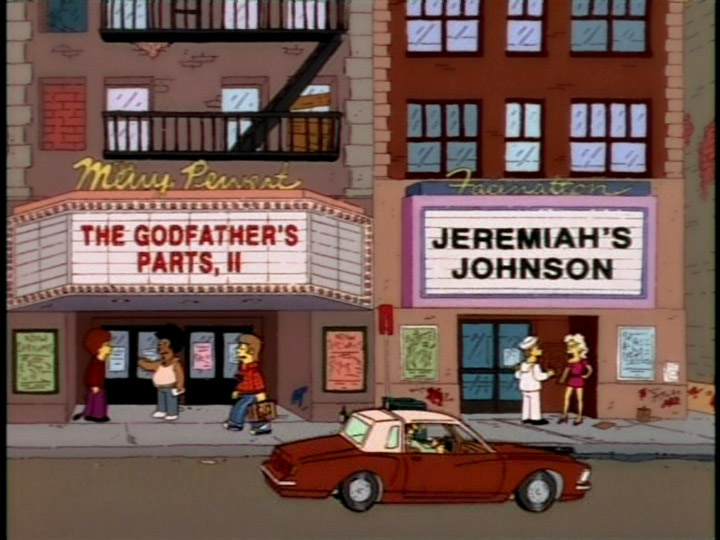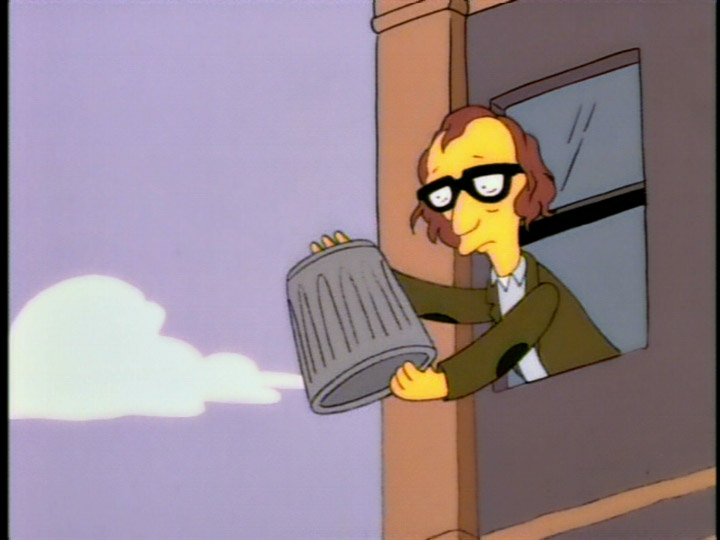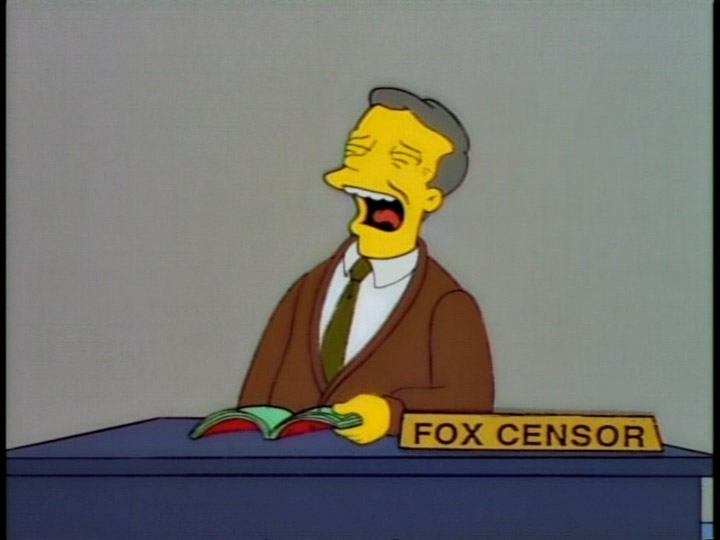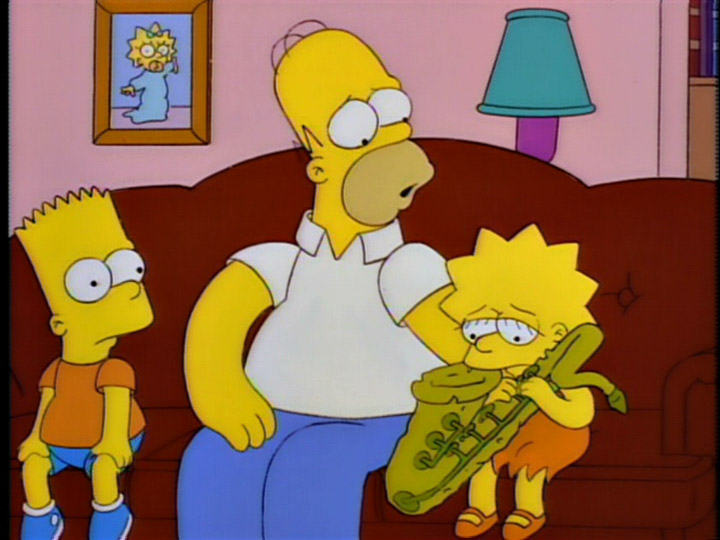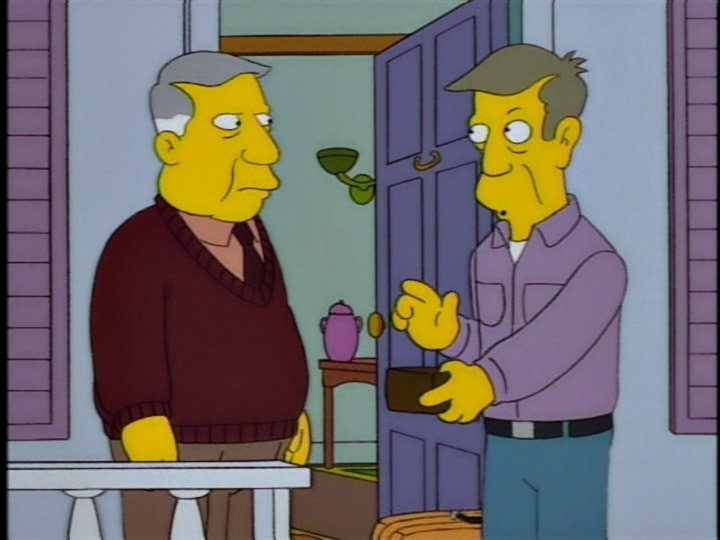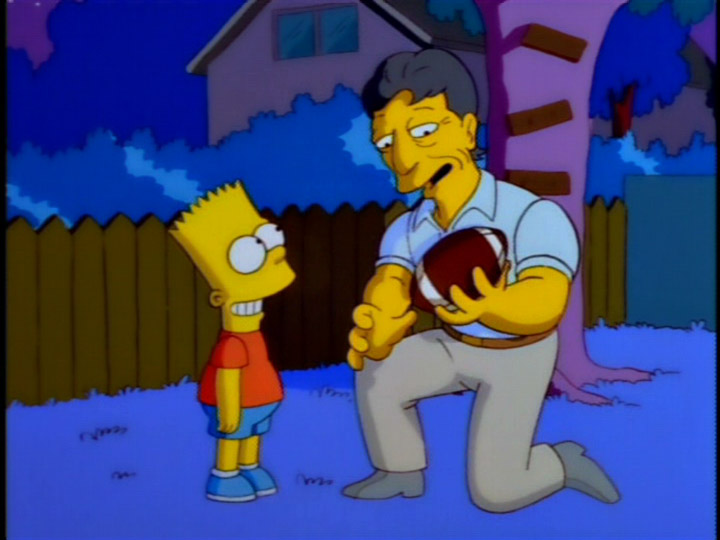![]()
![]()

![]()
![]()

The Simpsons - The Complete Ninth Season (1997)
created by Matt Groening
USA 1997
There’s little more to be said about the
longest-running animated television series that hasn’t been said already.
“The Simpsons” is a comedic marvel that possesses far more substance than
its somewhat primitive appearance would suggest. Matt Groening and numerous
talented writers are responsible for injecting the series with cultural
significance via scathing critiques of modern society that explore the
subtleties of familial dynamics lurking under the surface of kitchen tables,
television sets, and parental breeding grounds. With that said, the insight
that was so plentiful in the first six or so seasons began a steady decline
once the focus shifted from the Simpson family to their neighbors, friends,
and co-workers. The development of supporting characters can be a rewarding
direction, but only in moderation. The decline was inevitable as it is with
all television series. Characters can only be developed so much and
situations can only be manipulated in so many ways before repetition becomes
the norm. Whether the folks at Fox are planning to use the upcoming release
of “The Simpsons’ Movie” to inject some much needed enthusiasm into the
series is a legitimate question; the answer, I’m sure, is anxiously awaited
by numerous fans.
If seasons seven and eight initiated the aforementioned decline, season nine
affirmed this notion when the writers clearly began to lose their grip on
the identity of the Simpson family. Season nine marked more than a
transition in the portrayal of a middle-class American family; it signaled
the onset of a senseless exaggeration. This is not to say that humor was
absent from every episode, but consistency was no longer a concern. At this
point, it became clear that the writers and producers had lost sight of the
show’s original intentions to satire issues faced by middle-class Americans.
Perhaps the best example of said problems is evident in the episode “The
Principal and the Pauper.” In said episode, Principal Skinner is revealed as
an impostor, and when the real Seymour Skinner arrives in Springfield, the
principal’s actual name is exposed as Armin Tanzarian. Armin admits that he
stole the name Seymour Skinner after the war when the genuine Skinner did
not return home. Aside from the contrivances and absurdity of the episode,
which does offer several entertaining moments (as do most episodes), it’s a
fine example of how the writer’s have decided to go off on random tangents
with supporting characters. Emphasis eventually returns to a member of the
Simpson family, namely Marge, when she and others campaign to reinstate
Armin as principal.
Such complaints are largely inconsequential as the “Simpsons” fan base was
not reduced by any changes I and many others have noticed. Ratings continued
to be notably strong, and the series reached its 200th episode, “Trash of
the Titans,” without any signs of stopping. If anything, the target audience
may have shifted slightly, alienating those who watched the show for its
biting humor and insight rather than slapstick and cheap jokes. Regardless,
several of season nine’s episodes still capture the spirit of older seasons,
particularly “The City of New York vs. Homer Simpson” and “Das Bus.” The
former focuses on Homer’s various missteps while visiting New York and the
latter presents a cunning adaptation of the novel “Lord of the Flies.” I
think many fans will be grateful to have the episode “The City of New York
vs. Homer Simpson” on DVD as I was never able to see it air on television
after the events of September 11th, 2001; surely, this was because the twin
towers are featured prominently.
While this review may appear somewhat negative, it simply reflects my
disappointment in how the series has progressed into what is now the
eighteenth season. I must clarify that the tone of the review is no
indication of what I think of the series as a whole. “The Simpsons” is a
culturally significant landmark that drastically altered how family and
American culture are portrayed on television. For better or worse, it paved
the way for shows like “South Park,” “Family Guy,” and “King of the Hill.”
Ideally, “The Simpsons” will be equally remembered for its ability to
entertain as it will for its ability to challenge audiences to evaluate
their cultural awareness. Let’s just hope the series doesn’t sink any lower
than it has.
Poster
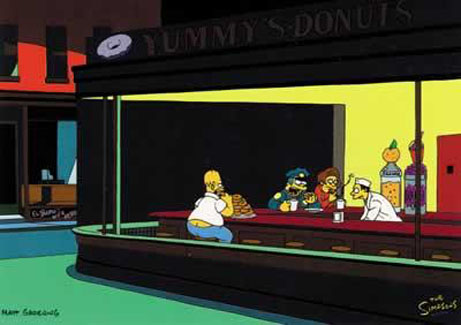 |
Television Premiere: December 17th, 1989
Reviews More Reviews DVD Reviews
DVD Review: 20th Century Fox (Collector's Edition) - Region 1 - NTSC
Big thanks to Kurtis Beard for the Review!
| DVD Box Cover |
|
CLICK to order from: |
| Distribution |
20th Century Fox Region 1 - NTSC |
|
| Runtime | 570 min | |
| Video |
1:33:1 Original Aspect Ratio |
|
|
NOTE: The Vertical axis represents the bits transferred per second. The Horizontal is the time in minutes. |
||
| Bitrate |
|
|
| Audio | Dolby Digital 5.1 (English), Dolby Stereo (French), Dolby Stereo (Spanish) | |
| Subtitles | English, Spanish | |
| Features |
Release Information: Studio: 20th Century Fox Aspect Ratio:
Edition Details:
Disc 1: Chapters 6x2 |
|
| Comments: |
Video:
Packaging and Inserts: |
DVD Menus
|
|
|
|
|
|
Screen Captures
Subtitle
|
|
|
|
|
|
|
|
|
|
|
|
|
|

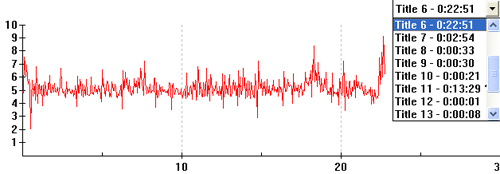
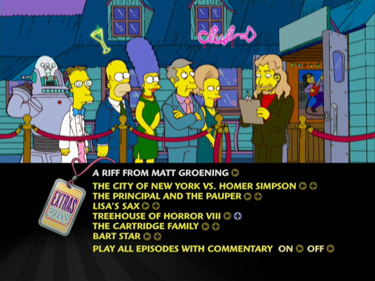
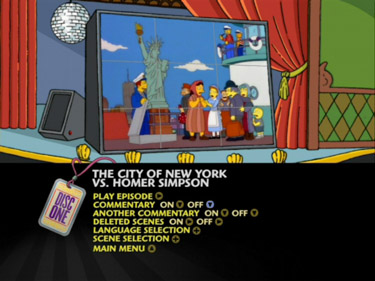
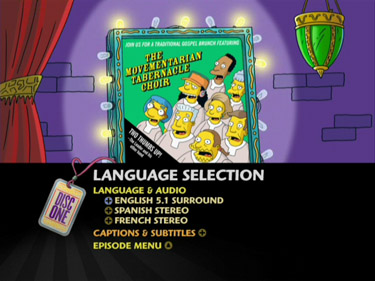
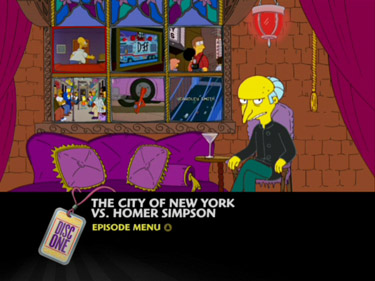
.jpg)
